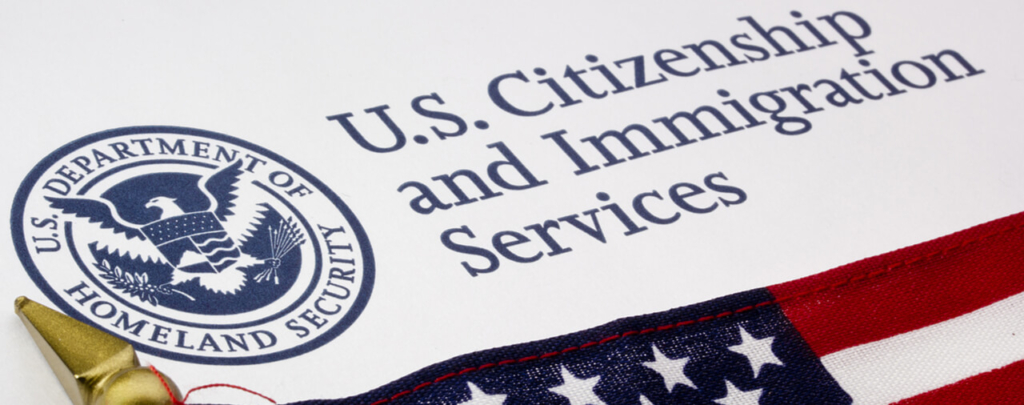On June 16, 2021, Attorney General Merrick Garland published two precedent decisions vacating important Attorney General precedent decisions from the prior administration. In Matter of L-E-A-, 28 I&N Dec. 304 (A.G. 2021) [PDF version], Attorney General Garland vacated former Attorney General William Barr’s precedent decision which held that nuclear families will generally not constitute particular social groups. In Matter of A-B-, 28 I&N Dec. 307 (A.G. 2021) [PDF version], Attorney General Garland vacated a 2018 precedent by former Attorney General Jeff Sessions and a 2021 precedent by former acting Attorney General Jeffrey Rosen, both of which narrowed the circumstances in which victims of private violence could qualify for asylum as members of a particular social group. Below, we will examine both decisions and their impact in brief.
Vacature of Matter of L-E-A-
In Matter of L-E-A-, 27 I&N Dec. 581 (A.G. 2019), former Attorney General William Barr held that most nuclear families do not constitute particular social groups because they usually lack social distinction. The decision was significant in light of the fact that several Federal appellate courts have recognized nuclear families as particular social groups in decisions. We covered the now-vacated Matter of L-E-A- in an earlier article [see article], which we are leaving available for future reference.
Attorney General Garland vacated the Attorney General decision in Matter of L-E-A- in its entirety “so as to return the immigration system to the preexisting state of affairs pending competition of the ongoing rulemaking process and the issuance of a final rule addressing the definition of ‘particular social group.’” Matter of L-E-A, 28 I&N Dec. 304, 305 (A.G. 2021).
Attorney General Garland did not otherwise disturb the Board’s 2017 decision in Matter of L-E-A- [see article], which mostly dealt with other issues in the case. We discuss the 2017 BIA decision on site.
Furthermore, although Attorney General Garland vacated the 2019 Matter of L-E-A decision in its entirety, he agreed with Attorney General Barr’s analysis regarding the Attorney General’s authority to review the matter. Matter of L-E-A-, 28 I&N Dec. 304, 306 n.3 (A.G. 2021). We discussed that portion of the now-vacated Matter of L-E-A- in a separate article [see article].
The Attorney General noted that rulemaking is process on the issue of what constitutes a particular social group. It is unclear when a final rule may be published, but any such rule could have a significant effect on family-based particular social group claims.
What Does This Mean Going Forward?
Attorney General Barr’s decision established a framework that made it very difficult to show that one’s own nuclear family constitutes a particular social group. Furthermore, its analysis made it more difficult — albeit not categorically impossible — to establish one’s family generally as a particular social group.
The rescission of Matter of L-E-A- II does not guarantee that any family arrangement will be found to be a particular social group, but it opens the door to claims that were effectively foreclosed by Attorney General Barr. Because numerous Federal circuit courts have some precedent decisions which recognized membership in nuclear families as constituting membership in a particular social group, there exists some guidance for how to frame family-based particular social group claims in those jurisdictions.
However, one must remember that the proposed particular social group must meet the generally applicable requirements for particularity and social distinction, and this may remain difficult for many family-based groups even without the negative Matter of L-E-A- II precedent.
It is unclear when a new rule defining the term “particular social group” may be published.
Vacature of Matter of A-B-
Attorney General Garland vacated former Attorney General Jeff Sessions’s precedent decision in Matter of A-B-, 27 I&N Dec. 316 (A.G. 2018). We discussed that decision in a full article [see article]. In Matter of A-B-, former Attorney General Sessions held that victims of private criminal activity will generally not be able to establish eligibility for asylum, absent exceptional circumstances. In so doing, he vacated a prior BIA precedent in Matter of A-R-C-G-, 26 I&N Dec. 388 (BIA 2014) [PDF version], which granted asylum to a woman who was the victim of violence inflicted by her husband. Therein, the Board agreed with the immigration judge’s finding that “married women in Guatemala who are unable to leave their relationship” was a “particular social group.”
Attorney General Garland vacated Matter of A-B- in its entirety and restored Matter of A-R-C-G to its former status as a binding precedent decision on immigration judges. He also vacated the second Matter of A-B- decision from January 2021, which sought to clarify the rule established in Matter of A-B- I (we do not have a separate article for Matter of A-B- II),
Analysis
The vacature of Matter of A-B- is immediately significant. Matter of A-B- effectively foreclosed most asylum claims based on private domestic violence. Conversely, Matter of A-R-C-G- adopted a very broad view for what constitutes a particular social group based on being a victim of domestic violence. Being able to rely on Matter of A-R-C-G- instead of Matter of A-B- opens the door to many asylum claims based in part on being the victim of domestic violence. With that being said, any proposed particular social group must meet the generally applicable group requirements. Although Matter of A-B- is no more and Matter of A-R-C-G- is a favorable precedent for domestic violence-based groups, groups based on private violence may still face difficulties that other groups that have been recognized may not.
Matter of A-B- was also a negative precedent for claims based on gang-based violence. However, we must note that there is no similar precedent to Matter of A-R-C-G- for gang-based violence claims and other claims based on private criminal activity. The existing Board precedents on gang violence claims from Central America are negative, and numerous Federal circuit courts have followed those. Thus, while the vacature of Matter of A-B- removes a significant barrier to gang-based violence claims and other claims based on criminal activity, the effect of the removal of Matter of A-B- may not be as dramatic in these cases as it is in domestic violence cases.
Similarly to the vacature of Matter of L-E-A-, the Attorney General noted that there is rulemaking in process regarding the definition of the term “particular social group.” If a final rule on the issue is published, that may have a significant effect on the types of asylum claims affected by the former precedent in Matter of A-B-.
Conclusion
Attorney General Garland’s decisions signify a big policy shift on asylum claims in the Biden Administration. However, neither decision creates a new rule for particular social groups so much as they return the situation for family-based groups and claims based on private violence to their pre-2018 status quo. The possibility that new regulations on what constitutes a “particular social group” may be published has the potential to dramatically change the asylum ground going forward. However, until a rule is published in the Federal Register, we cannot say for certain what those changes may be.
An individual who believes that he or she may have an asylum claim should consult with an experienced immigration attorney. An attorney will be able to assess the individual’s case and determine whether he or she may have a viable claim for protection in the United States. In the event the claim can go forward, the attorney will be able to assess the current legal situation for asylum claims and apply the most up-to-date precedents and rules to the particular facts of the individual’s case.



-1024x405.jpg)
-1024x405.jpg)
